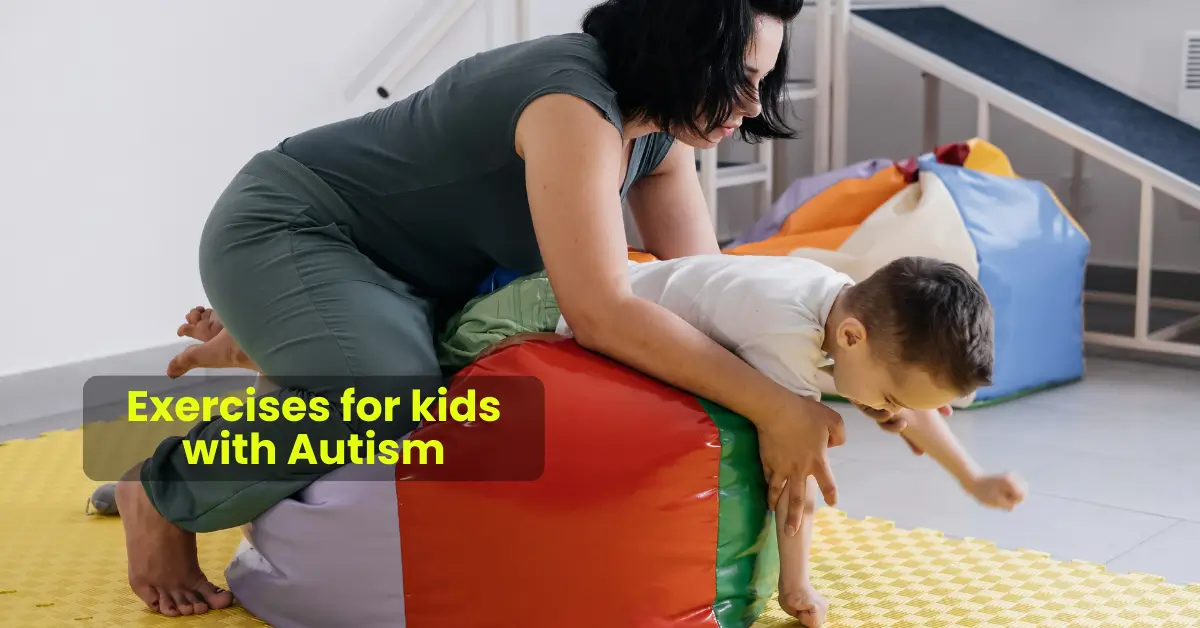Effective Exercises for Kids with Autism: Boost Development and Well-being
Children with autism spectrum disorder (ASD) often face challenges in motor skills, coordination, and social interaction. Exercise plays a vital role in their physical, mental, and emotional development. Carefully planned activities can improve balance, muscle strength, and sensory integration while also being enjoyable and confidence-boosting.
This guide will delve into effective exercises for kids with autism, providing insights into their benefits, techniques, and tips for creating a structured yet fun fitness routine.
Why Exercise is Important for Kids with Autism
Engaging in physical activities offers numerous benefits:
Encourages Routine: A consistent exercise schedule fosters a sense of structure and discipline.
Improves Motor Skills: Autism often impacts fine and gross motor abilities. Exercise helps improve coordination, balance, and strength.
Enhances Social Skills: Group activities encourage interaction, teamwork, and communication.
Promotes Emotional Well-being: Physical activities release endorphins, reducing anxiety and promoting a sense of calm.
Supports Sensory Integration: Certain exercises can help regulate sensory responses, making children more comfortable in different environments.
Effective Exercises for Kids with Autism
1. Yoga and Stretching
Benefits: Improves flexibility, concentration, and sensory awareness.
Cat-Cow Stretch: Promotes sensory integration.
Incorporate visual aids or music to make yoga engaging and interactive.
Child’s Pose: Encourages relaxation.
Tree Pose: Enhances balance and focus.
2. Walking or Running
Benefits: Boosts cardiovascular health and energy levels.
- Start with short walks in a calm environment.
- Gradually introduce jogging or fun runs.
- Use incentives like walking towards a favorite location or following a trail of markers.
3. Obstacle Courses
Benefits: Develops motor planning and problem-solving skills.
- Create simple courses using household items (pillows, cones, or ropes).
- Include activities like crawling under tables, hopping over objects, and balancing on a beam.
- Modify difficulty levels based on the child’s abilities.
4. Swimming
Benefits: Enhances sensory regulation, strength, and coordination.
- Water activities can be soothing for many children with autism.
- Focus on basic skills like floating or splashing to build comfort.
- Always ensure safety with supervision and flotation devices.
5. Ball Games
Benefits: Improves hand-eye coordination and social interaction.
- Start with simple throwing and catching.
- Gradually introduce games like basketball or soccer.
- Use lightweight, soft balls to ensure safety.
6. Trampoline Jumping
Benefits: Aids in sensory processing and energy regulation.
- Jumping helps release pent-up energy while enhancing balance.
- Supervise and encourage creative movement on the trampoline.
7. Dance and Music
Benefits: Combines movement with rhythm, improving coordination and mood.
- Use the child’s favorite songs to create a fun dance routine.
- Encourage free movement to foster creativity.
8. Martial Arts
Benefits: Boosts self-discipline, focus, and self-confidence.
- Opt for beginner-friendly styles like karate or taekwondo.
- Choose classes with instructors experienced in working with kids with autism.
Tips for Implementing Exercise Routines
- Personalize Activities: Adapt exercises to the child’s preferences and abilities.
- Consistency is Key: Establish a regular schedule to build familiarity.
- Incorporate Rewards: Positive reinforcement encourages participation.
- Focus on Fun: Make sessions enjoyable rather than overly structured.
- Monitor Progress: Celebrate achievements, no matter how small.
Conclusion
Regular physical activities are transformative for children with autism. They foster growth in motor skills, social interaction, and emotional well-being while helping children explore their potential in a fun and supportive way. By integrating the right exercises for kids with autism into their routines, parents and caregivers can nurture development and confidence in every child.
At Arunalaya, we believe in holistic care, offering tailored support for children with special needs. Our team is dedicated to enhancing their quality of life through innovative therapies and guidance.
For expert advice and support, reach out to us today and embark on a journey toward brighter possibilities.

